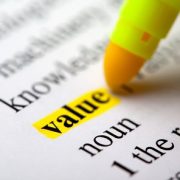NORMALIZING ADJUSTMENTS & THE TRUE COMPANY VALUE
Although a detailed analysis of the financial statements reveals pertinent financial data, the true value of a Company requires that normalizing adjustments be made to the financial statements. Normalizing adjustments reflect a more accurate financial performance, both historically and projected. Normalized financial statements also help determine the Company’s future cash flows, and assess its financial performance relative to similar businesses and industry peers.
Normalizing adjustments, especially for middle-market businesses, are made with numerous motivations, but are ordinarily comprised of unusual, nonrecurring, or extraordinary items, unusual accounting conventions, non-operating items and/or discretionary expenses. Some of the most common normalizing adjustments include:
- Lawsuit settlement
- Non-arms-length revenue or expenses
- Accounting methods for inventory and depreciation
- Owner compensation – above or below industry standards
- Rents – above or below fair market value
- Owner “perks” – company cars, country club membership
It’s not uncommon for the normalizing adjustments to become a major point of contention between buyers and sellers in mergers and acquisitions transactions. A knowledgeable M&A Team will begin the discussion of True Company Value with the use of Normalized Income.





Leave a Reply
Want to join the discussion?Feel free to contribute!